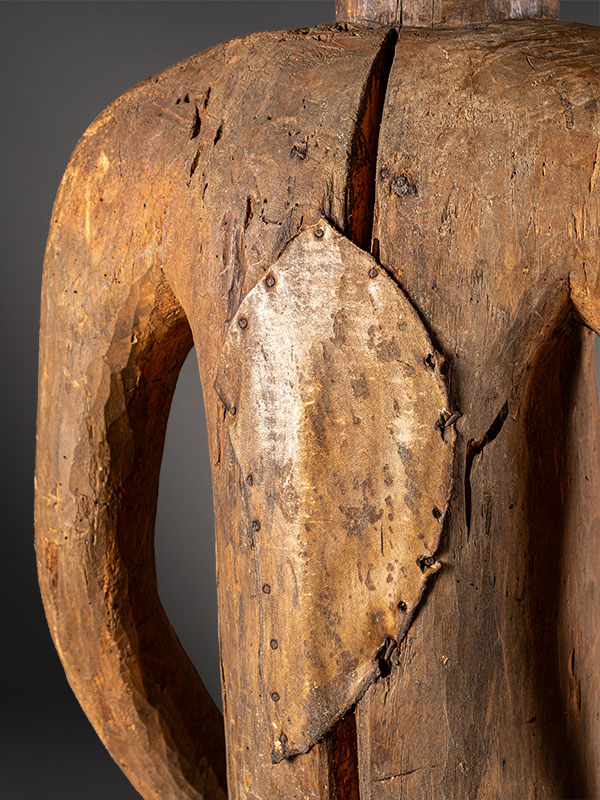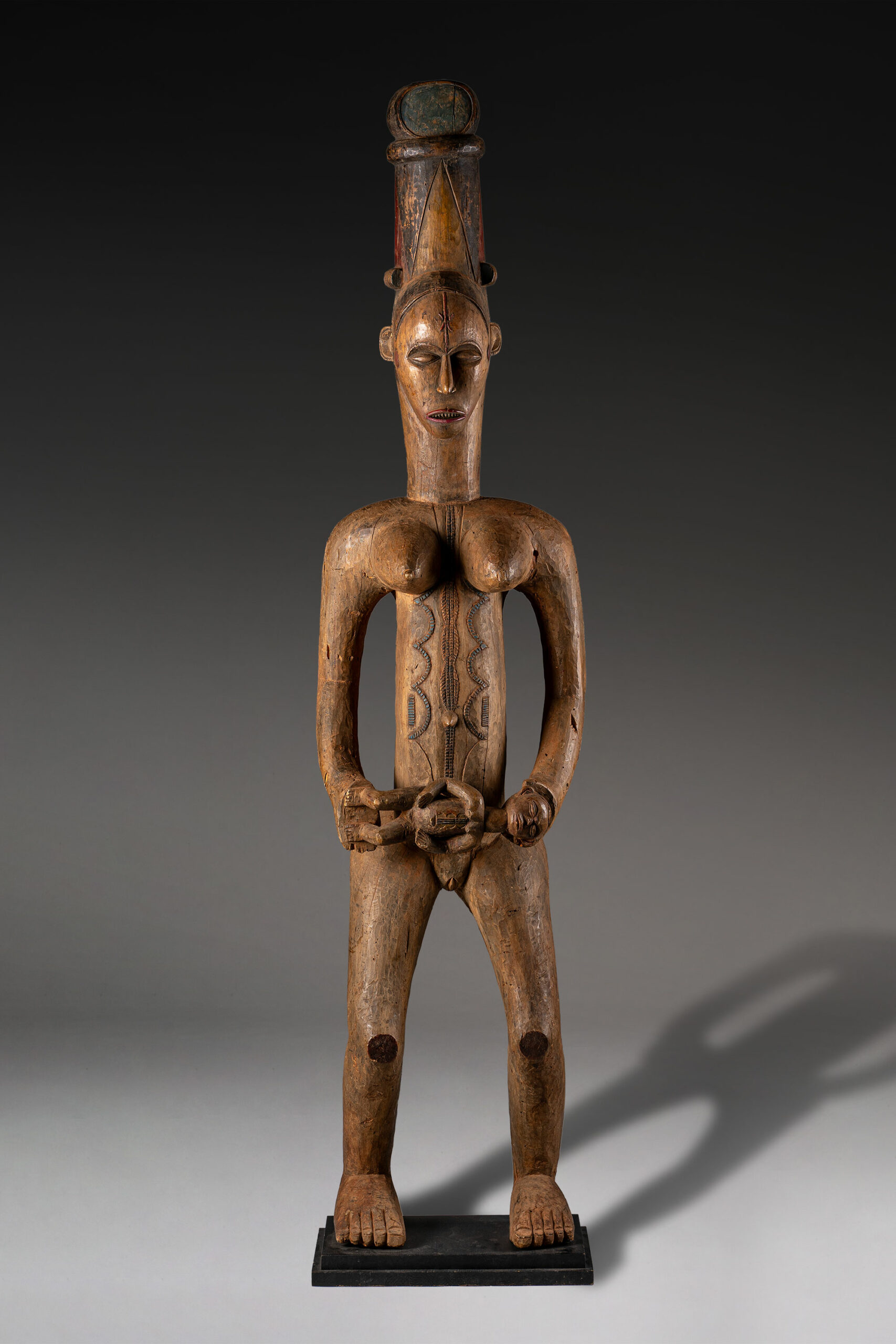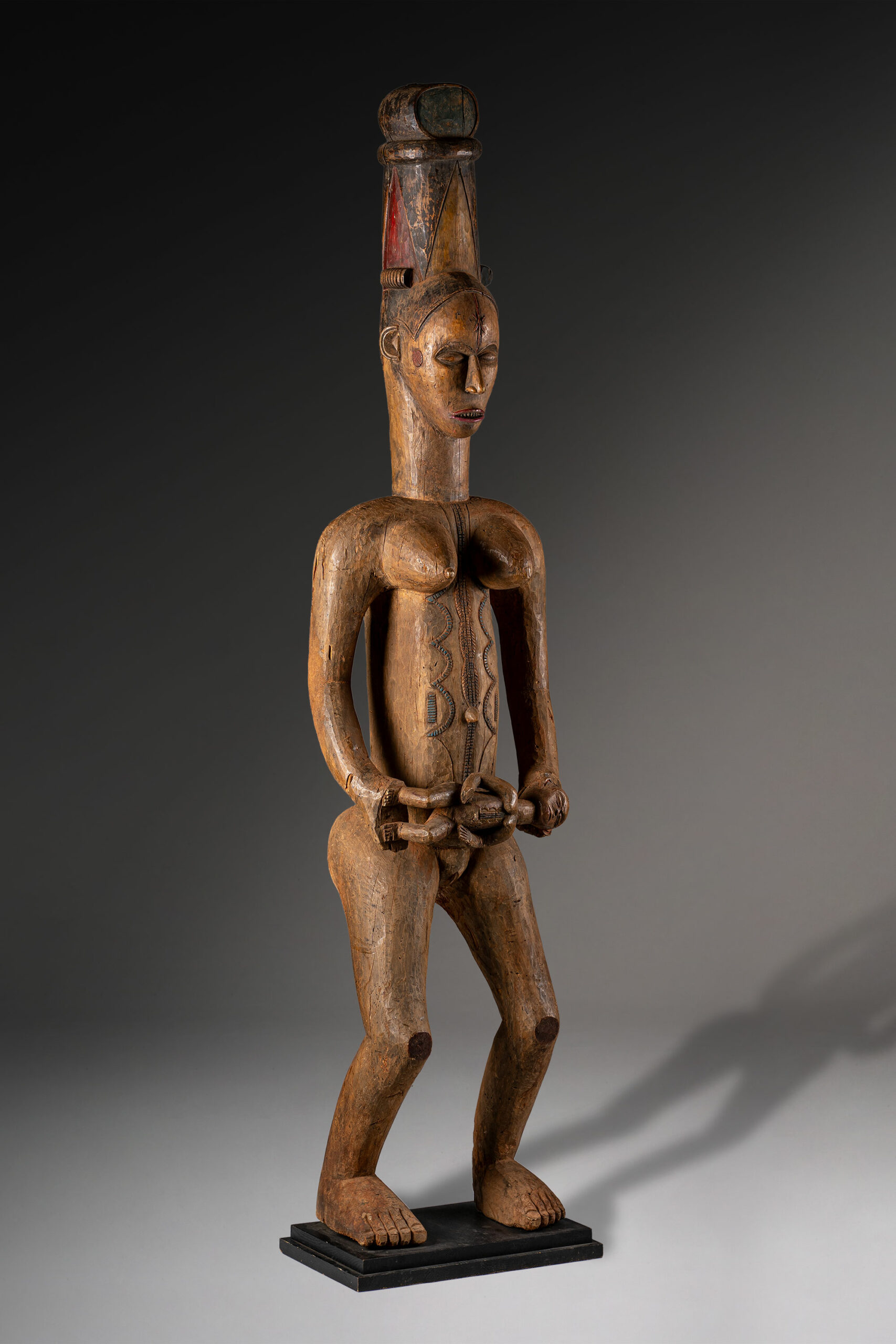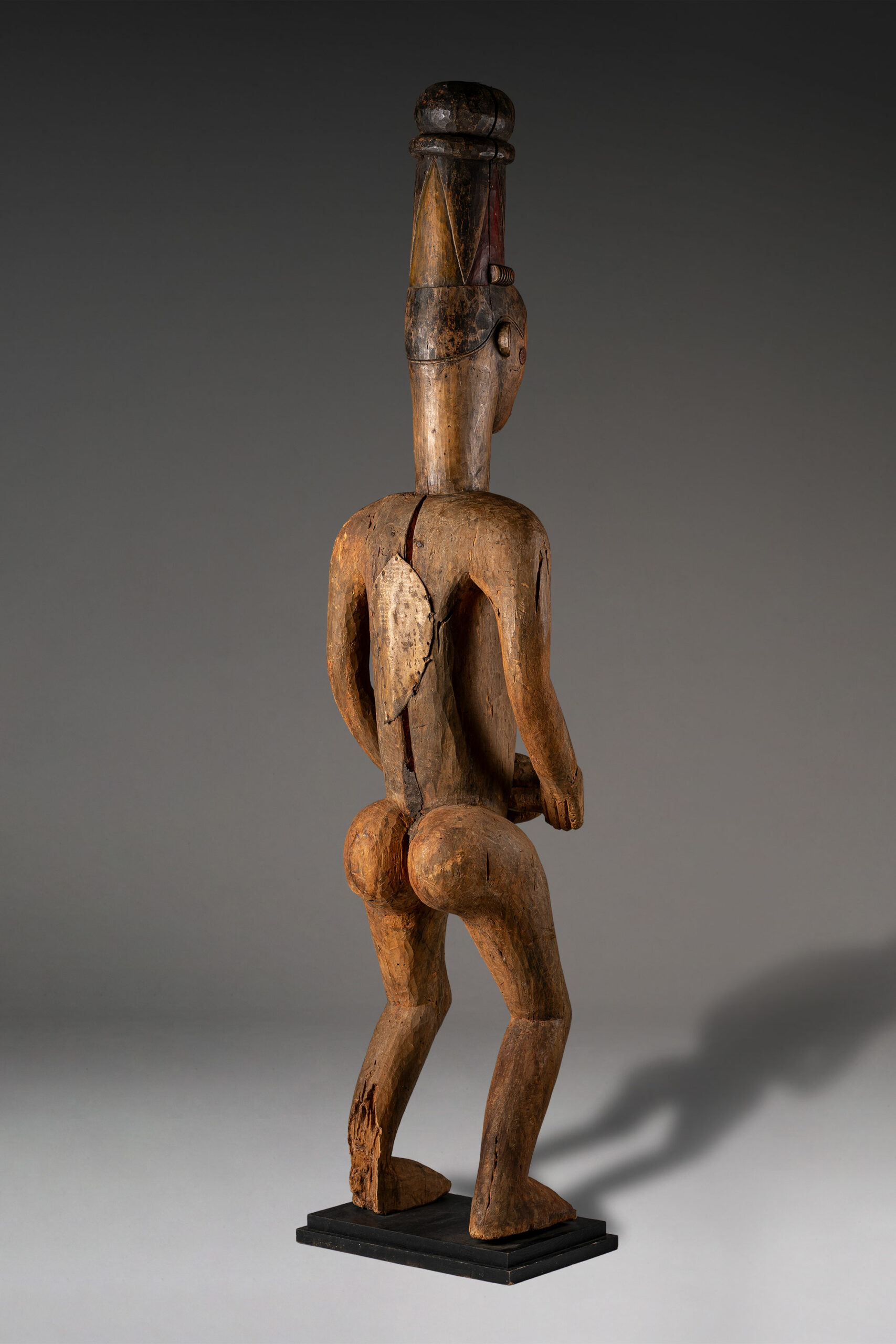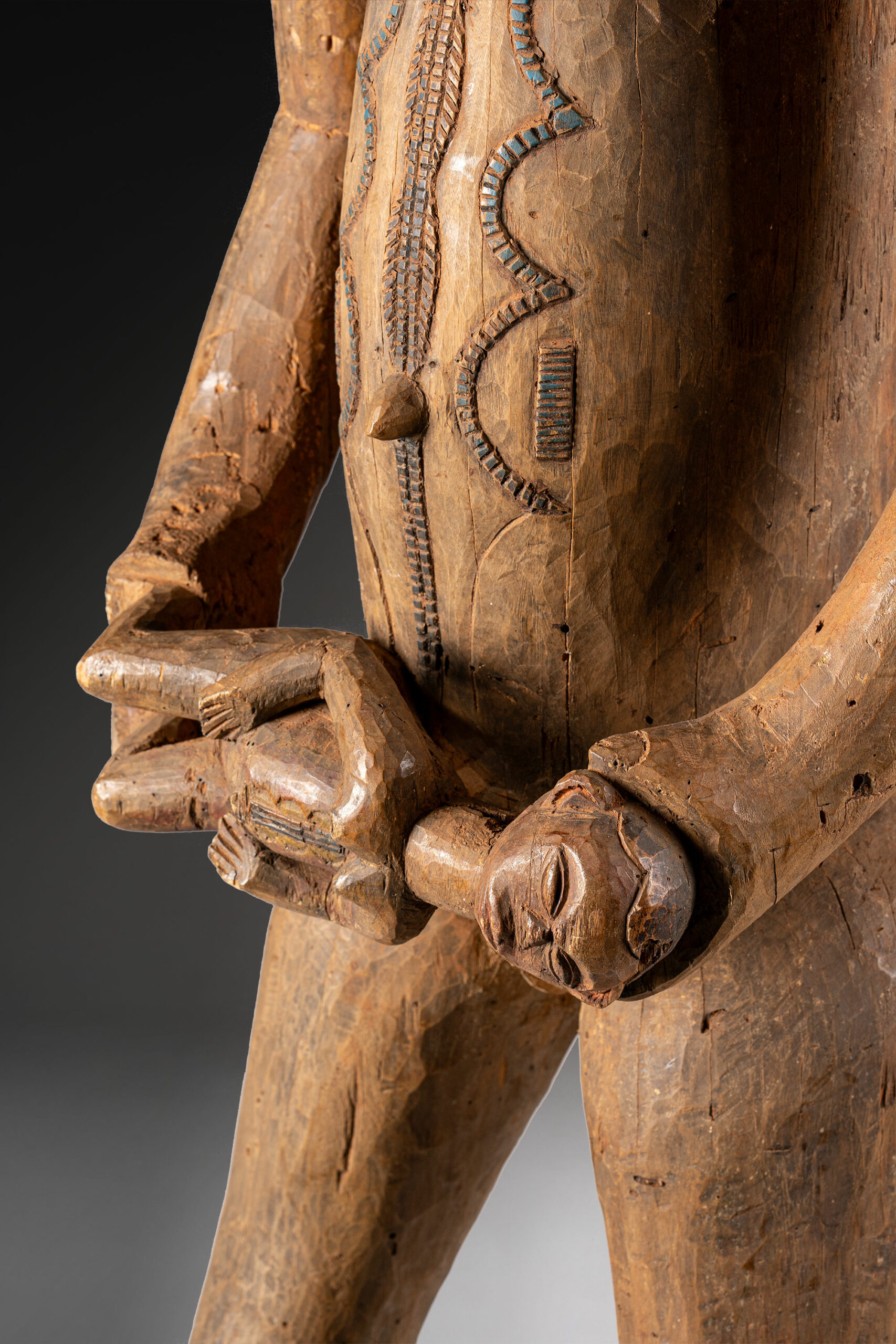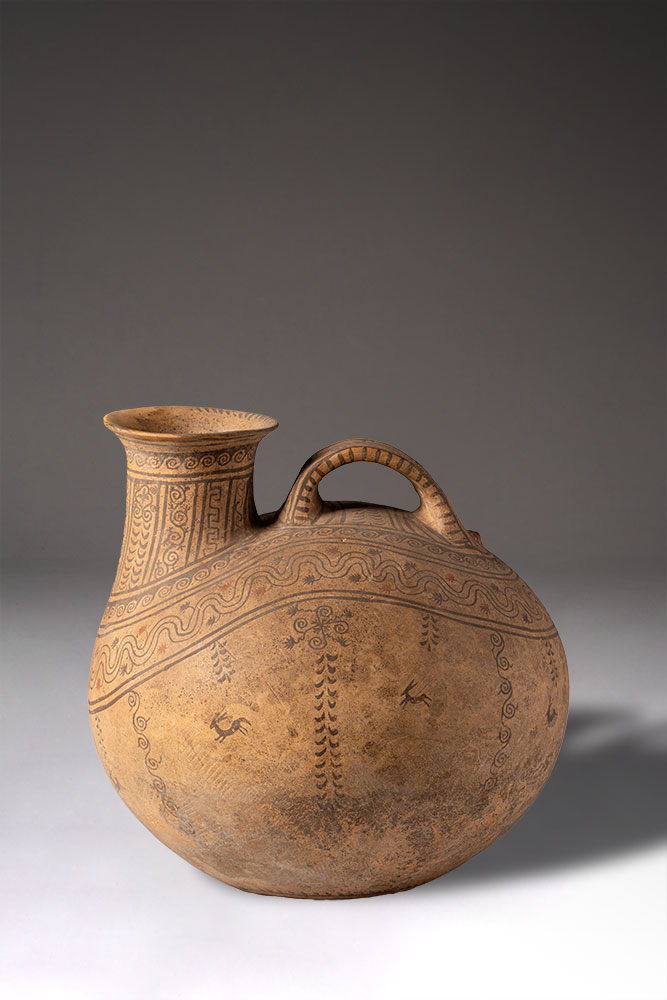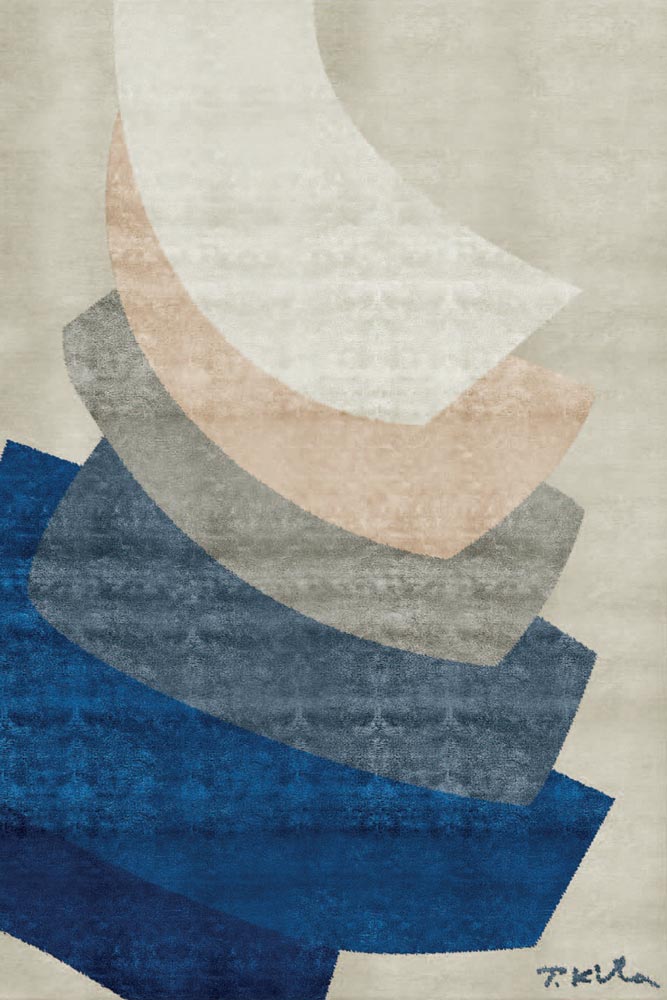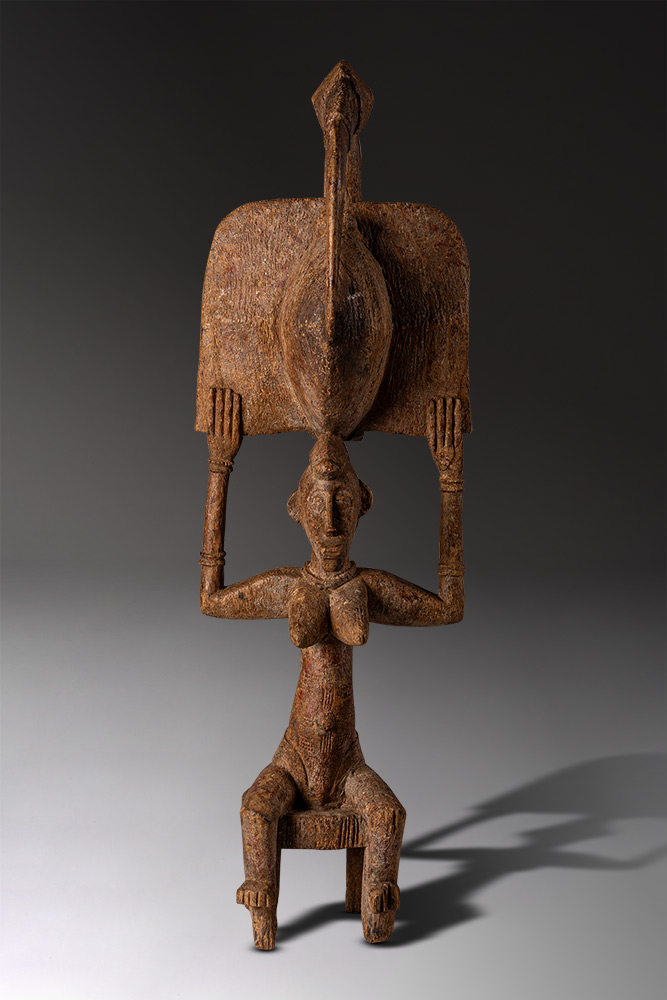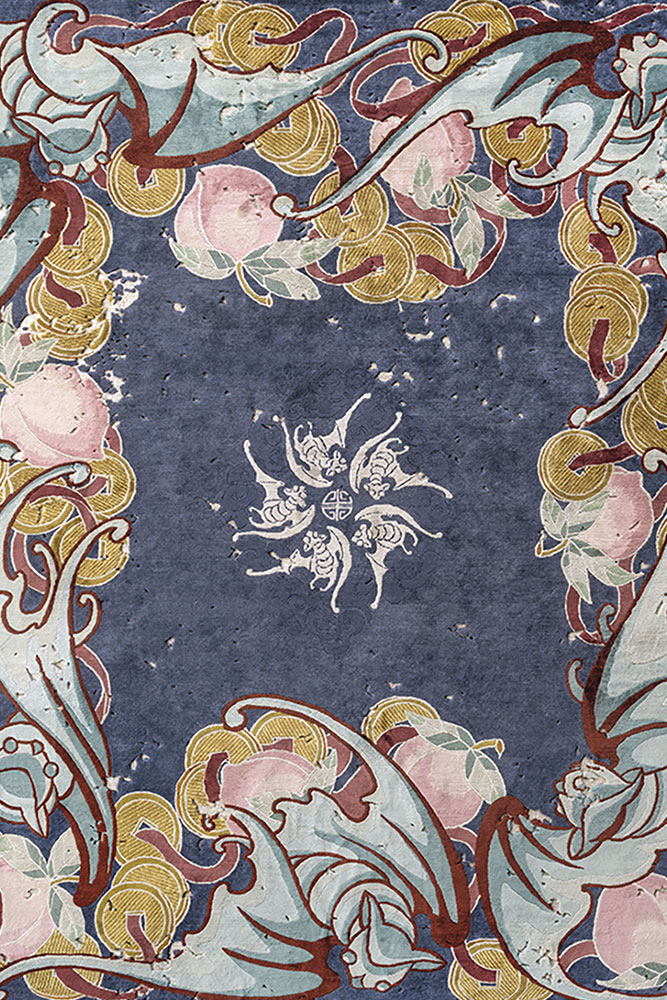Maternal figure Igbo
Origin: Nigeria
Culture: Igbo
Materials: Wood, pigments
Dating: Late 19th – Early 20th century
Dimensions: 210 cm – 82,68”
Provenance: Ex Belgian collection
Price: upon request Before British colonialism, Igbo society had a matrilineal, matriarchal structure. Women oversaw the trade sector, could divorce, marry each other, and had developed practices to resist male violence. In 1884, it was a woman named Nwagboka, the omu of Onitsha, also known as the ‘mother of society’, who signed the treaty with the British colonisers.
In Igbo mythology, feminine power is associated with the mystical and sacred ability to create life. The symbolism of mother earth, culminating in the figure of the earth goddess Ala, is expressed through Uli/Uri art, which is applied to both houses and the body, particularly through the scarifications known as mbudu.
The headdress worn by the statue corresponds to those worn by Igbo women, and the body displays the ritual mbudu scarification with the typical cross on the forehead, symbolising fertility.
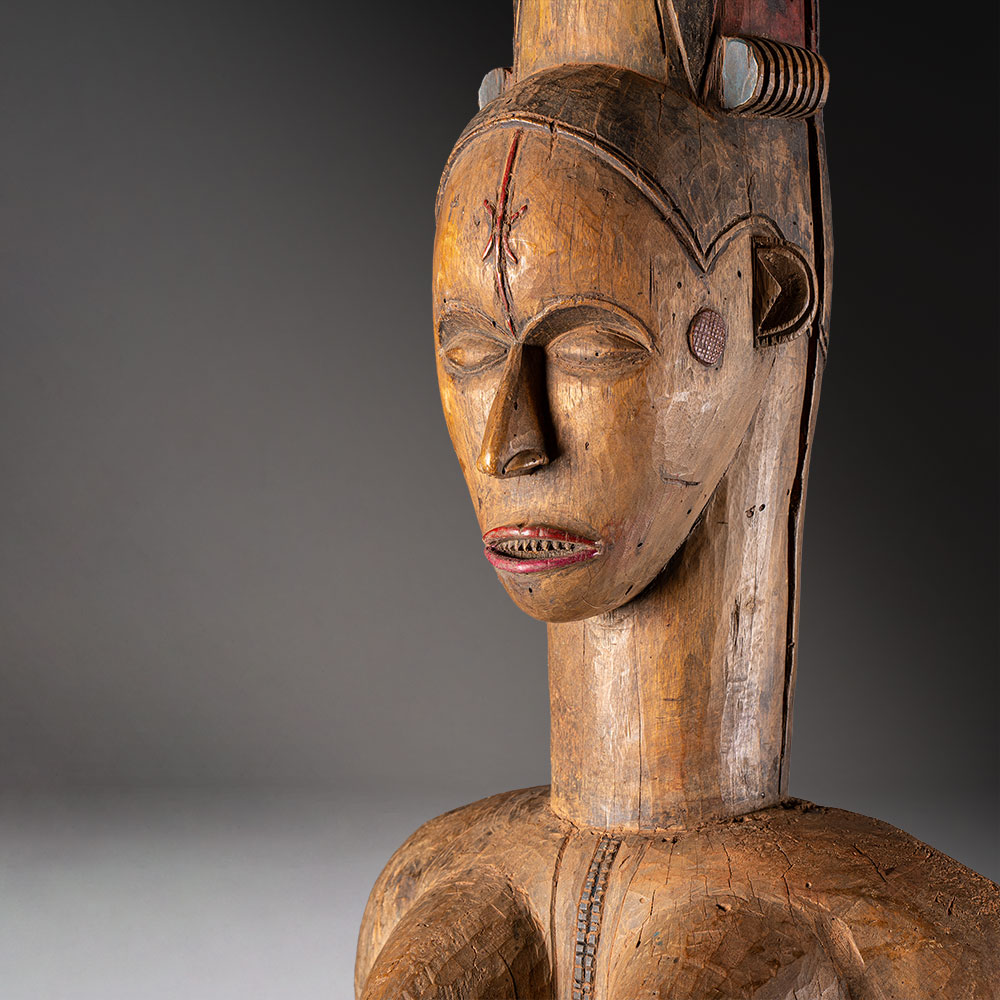
Il copricapo che porta la statua coincide con quelli veri indossati dalle donne Igbo, e lungo tutto il corpo si possono vedere le scarificazioni rituali mbudu, con l’incrocio tipico sulla fronte, simbolo della fertilità.
